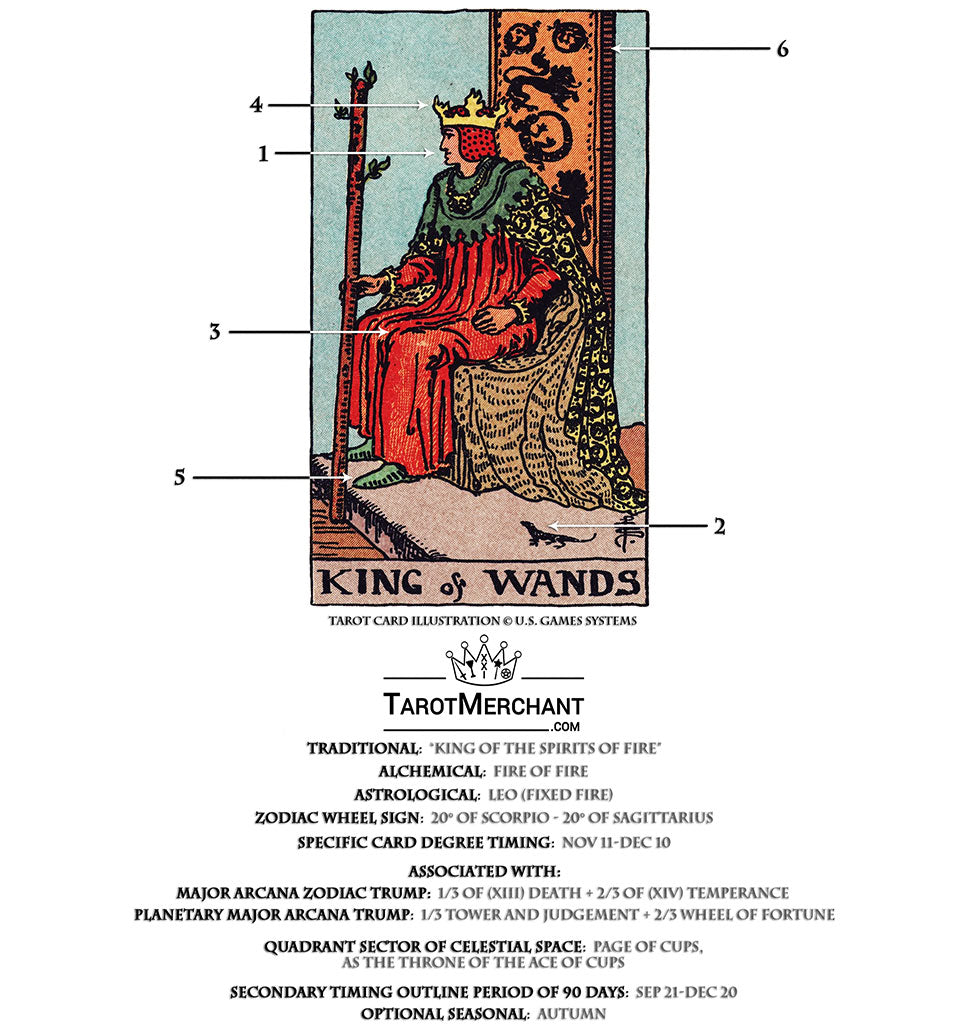The King of Wands is a card imbued with charisma, authority, and a distinctive passion for life. Viewed through a Christian lens, this imagery evolves, reflecting not merely the ambition inherent in human nature but a divine calling to leadership and purpose. The King invites the faithful to examine their roles in the world and encourages a righteous leadership style, one that is modeled after biblical figures known for their vision and guidance.
At the heart of the King of Wands is the notion of transformation. In the narrative of Christianity, change is often heralded as a divine promise. The King embodies this concept, urging believers to embrace a shift in perspective. Much like the biblical narratives of transformation—such as Saul’s conversion to Paul—this card also signifies a profound metamorphosis. It asks the believer to ponder their own life and consider how God might be urging them to lead in a new direction.
As a representation of leadership, the King of Wands correlates with influential biblical figures such as King David and Jesus Christ. Each exemplified a fiery spirit and an unwavering commitment to their God-given missions. David, a shepherd boy who became a king, modelled the courage and passion that the King of Wands embodies. He was not only a warrior but also a poet and musician, a reminder that leadership can take myriad forms. Jesus personified this through his life of service, teaching, and sacrifice, always directed by purpose and a vision for God’s kingdom on earth.
The role of a king is not merely to reign; it is to serve. This is a crucial tenet of leadership from a Christian perspective. The King of Wands compels the believer to envision their own influence within their communities, workplaces, and families. The powerful flames depicted in the card symbolize the nurturing quality of inspiration, suggesting that true leaders spark motivation and ignite passion in those around them. This is particularly resonant for Christians, as their leadership should embody Christ’s love and serve the greater good.
In examining the traits of the King of Wands, we observe a call to courage and creativity. These are more than mere attributes; they are virtues that can galvanize others toward action. Christians are often called to be “agents of change,” much like the King of Wands, who encourages followers to break away from passivity and embrace their God-given potential. His creative spark resonates with the notion that God is the ultimate creator, and humans, made in His image, are also called to manifest creativity in their lives.
The King of Wands also speaks to the importance of vision. A leader without vision may lead a flock astray, but one who possesses a clear sense of direction can transform uncertainty into opportunity. In the biblical context, God’s revelations to leaders like Moses demonstrate how divine guidance can illuminate a path forward, even in the face of daunting challenges. This card encourages Christians to dig deeper into their relationship with God, seeking wisdom and clarity. Like the kings of old who consulted prophets, modern believers are reminded to seek spiritual counsel to navigate their leadership journeys.
In addition to vision, the King of Wands is emblematic of social empowerment. Here lies an intersection between ambition and altruism. The King inspires Christians to use their gifts to uplift others rather than simply elevate themselves. This aspect resonates with the teachings of Jesus, who often emphasized humility and servant leadership, championing the cause of those marginalized and voiceless. The King encourages a proactive stance in social justice, urging the faithful to advocate for change inspired by love, not judgment.
However, the fervor of the King of Wands must be tempered with wisdom. This is where understanding the complex nuances of leadership becomes crucial. In the story of King Solomon, we find a biblical example of the delicate balance between passion and discernment. Conversely, the wrong application of zeal can lead to downfall—something seen through the sordid history of rulers who acted without ethical grounding. Christians are called to embody a fiery spirit, balanced by patience and foresight. Herein lies an invitation to self-reflection and rectitude.
Moreover, the King of Wands signifies a broadening of horizons. He beckons believers to step beyond their comfort zones, challenging them to expand their faith and understanding. This journey often leads to fresh revelations and a more profound understanding of God’s grandeur. Like the disciples sent forth to spread the Good News, the King encourages Christians to embrace adventure in their spiritual lives, advocating for an inquisitive heart eager for exploration and enlightenment.
In conclusion, the King of Wands within a Christian framework is more than an archetype of authority; he is a paradigm of dynamic and righteous leadership. His connotations of transformation, creativity, vision, and empowerment present a multifaceted invitation to all believers. Through embracing the essence of this card, Christians can shift their perspectives, seeking to lead with passion and conviction, thus fostering a profound impact within their communities. Ultimately, the King of Wands guides us to exercise our faith boldly, inviting us on an exhilarating journey toward spiritual leadership and community engagement.







Leave a Comment